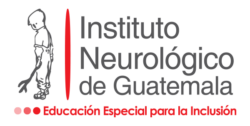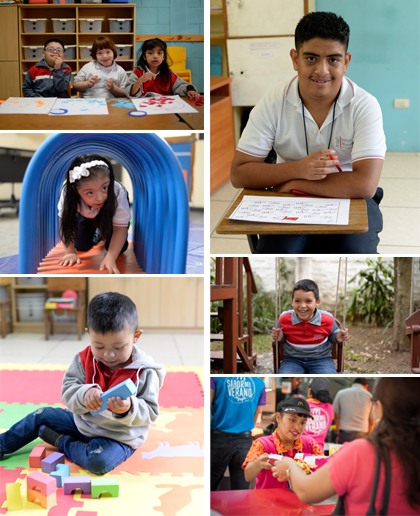
We are a private, non-profit institution founded in 1961 by a group of dedicated parents and physicians who were interested in providing access to special education and support services for underprivileged children and young people with intellectual disabilities and autism, to enhance their skills and abilities and help them reach their full potential.
Our main goal is to help each individual reach their full potential by means of our special educational and therapeutic programs. We promote the development of their psycho-affective, intellectual, and motor abilities. Our services are aimed at individuals with intellectual disabilities from 6 months of age, through young adulthood. With the ongoing support of their parents, we are able to provide students with early intervention, school age academic education, vocational training, and job placement programs.
We are funded through grants, private donations, and public fundraising events which are organized throughout the year. We now invite you to get involved and to participate with us!
Our organization is guided by a Board of Directors that is composed by a group of philanthropic professionals who are committed to our cause. They donate their time and services at no cost to the Institution, contributing their experience and knowledge to strengthen and develop our programs.
We operate within three major areas
Intellectual disability is currently included according to the (DSM-5) Diagnostic and Statistical Manual of Mental Disorders, under the classification of Neurodevelopmental Disorder. Intellectual disability includes a deficit in intellectual functioning, a deficit in adaptive functioning and could begin in the period of development. Among the characteristics that intellectual disability might present alterations in some cognitive processes such as reasoning, problem-solving, planning, among others, as well as some difficulties in adaptive functioning that enable one to attain social and cultural skills that permit personal independence and social responsibility.
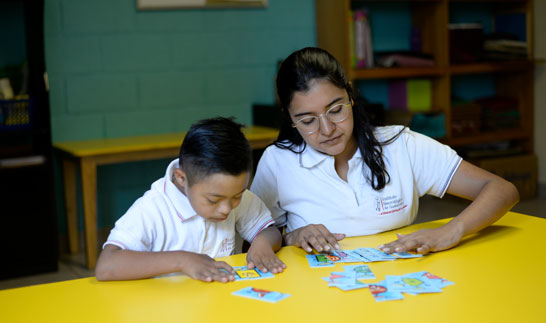
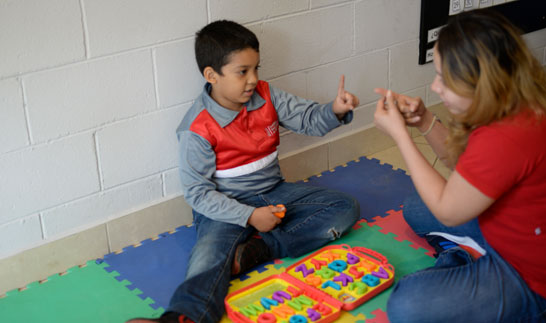
Autism Spectrum Disorder is included in the DSM-5 as a Neurodevelopmental Disorder. It is characterized by presenting persistent deficiencies in communication and social interaction in different contexts, including deficits in social reciprocity, non-verbal communication behaviors used in social interactions and the ability to develop, maintain and understand relationships. They present some restrictive and repetitive behavior, interests or activity patterns that are manifested through movements, stereotyped speech, etc. or an insistence in monotony, excessive inflexibility in routines, etc, as well as an alteration in sensory modulation or hyper-reactivity to stimulation.
Inclusion seeks that all individuals or social groups, especially those that find themselves in conditions of segregation or marginalization, may find the same possibilities and opportunities to fulfill themselves as individuals.
In the Neurological Institute of Guatemala (NIG), we are governed by the norms and national and international agreements such as the Convention on the Rights of People with Disabilities, whose purpose is to promote, protect and assure the full enjoyment of and conditions of equality with all human rights and fundamental liberties for all people with disabilities, and to promote the respect of their inherent dignity. We promote educational, social and work inclusion and we perform activities where our children, young people and adults can participate in equal conditions; we participate in inclusive processes in various education centers and establish alliances with the private sector in order to provide work opportunities for young adults with ID or Autism.
If you wish to know more about our inclusion programs you may write to us to:
alianzas@institutoneurologicodeguatemala.org
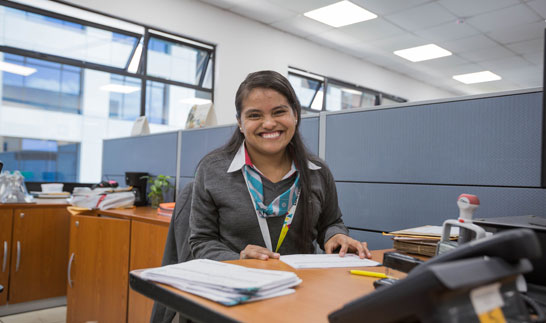
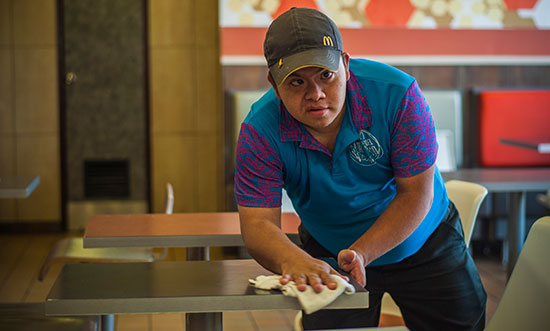
9ª avenida 5-51 zona 11, Ciudad de Guatemala
Información General
info@institutoneurologicodeguatemala.org
Teléfono: 2471-1613
Padrinos y Donaciones
padrinos@institutoneurologicodeguatemala.org
WhatsApp: 2475-1178
Coordinación Académica
academica@institutoneurologicodeguatemala.org
Teléfono: 2471-0899
Programa de Formación Edúcate
formacion@institutoneurologicodeguatemala.org
Teléfono: 3792-9250
